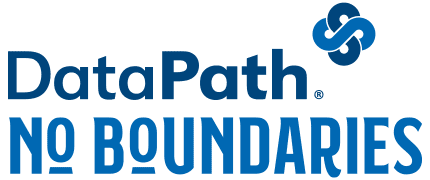
In May 2020, the Internal Revenue Service (IRS) published COVID-19 guidance for employer-sponsored healthcare benefits. Drafted to address unanticipated changes in medical and childcare costs due to the COVID-19 emergency, the two Notices – Notice 2020-29 and 2020-33 – relax mid-year election changes for health Flexible Spending Accounts (FSAs) and Dependent Care Assistance Programs (DCAPs). They also provide more flexibility in grace periods for both types of accounts and increase the maximum annual carryover amount for health FSAs.
As the pandemic has raged on, the federal government has released several modifications to healthcare benefits to assist American companies and workers handle the economic stress caused by COVID-19. Among the measures are the CARES Act, and COBRA and claims run-out extensions .
The following analysis was written with assistance from the Employers Council on Flexible Compensation (ECFC), the Society of Professional Benefit Administrators (SPBA), and Alston & Bird.
Cafeteria Plan, Health FSA and DCAP Elections
COVID-19 Guidance for Mid-Year Elections
Outlined in Notice 2020-29, employers can amend health FSA and Dependent Care FSA plans that begin in 2020 to allow for changes to annual elections or allow new elections. Employers are not required to immediately amend their plans and have the ability to limit how many changes are allowed.
Employers may allow participants to do the following:
- Make a new election, even if the employee had previously declined
- Revoke an existing election and make a new election in a different health coverage offered by the employer (with written intent from the employee)
- Revoke an existing election and make a new election in a plan not offered by the employer
- Increase, decrease, make a new election or revoke an existing election for a health FSA
- Increase, decrease, make a new election or revoke an existing election for a Dependent Care FSA (DCAP)
Mid-year elections cannot be retroactive to allow for refunds. If a participant had already contributed $1,000 to their FSA, they may decrease their election to that amount. They are not allowed to decrease the election to less than $1,000 and get a refund.
Prior to this guidance, with a health FSA participants could only change their elections due to specific “qualified” life events. These included an update in marital status, addition or loss of a dependent, change in employment status or becoming eligible for Medicare or Medicaid. For Dependent Care FSAs, participants could update elections based on changes to care costs and care provider closings, among other reasons.
Extended Grace Period for Health FSAs and DCAP
A grace period is a pre-defined timeframe after the plan year ends that enables participants to spend down any remaining balance from the previous year. For plans on the calendar year (January 1–December 31), grace periods often end on March 15 of the following year.
Employers may now amend their plans to allow for beneficiaries to use their unused health FSA, Dependent Care FSA, or Limited Purpose FSA funds. The guidance applies to grace periods ending in 2020 or plan years ending in 2020, allowing the spending extension to end December 31, 2020. If a plan does not have a grace period but the plan year ends in 2020, the employer may allow participants to apply the unused amount through December 31, 2020.
Important Note: If an employer adopts the grace period extension, employees will become ineligible for an HSA through at least December 31, 2020.
Deadline for Plan Amendments
Employers are not required to adopt these changes. In order to allow mid-year elections and extend grace periods for 2020, employers have until December 31, 2021 to file a plan amendment.
Health FSA Carryover
In Notice 2020-33, the IRS also updated guidelines for FSA carryover. Since 2013, health FSA participants whose plans allowed the carryover option could carry over a maximum of $500 in unused funds to the following year.
Going forward, the maximum carryover amount will be indexed to 20 percent of the annual maximum election. For 2022 FSA plan years, participants may carryover a maximum of $570 (20 percent of $2,850) to the next year.
If the employer chooses to adopt the carryover increase, a plan amendment is required by December 31, 2021.
HDHP clarifications
Coronavirus Testing
On March 27, 2020, the IRS stated that High Deductible Health Plans could cover COVID-19 diagnoses and treatments without affecting the HDHP status. This allows Health Savings Account (HSA) owners to keep their plan status, which enables them to contribute to their HSAs.
The May 12 guidance from the IRS clarifies that the date for these treatments is retroactive to January 1, 2020. In addition, it also allows those plans to cover influenza A&B, norovirus and other coronaviruses, and RSV, under COVID-19 testing.
Telehealth
Along with the testing for COVID-19, the March 27 guidance also allowed telehealth services to be covered by an HDHP before the deductible is met without jeopardizing the plan’s status.
The guidance published on May 12 clarifies that an eligible person with HDHP coverage can also get coverage for telehealth and other remote services outside the HDHP and before meeting the HDHP deductible and still contribute to an HSA. This is effective retroactive to January 1, 2020 and applies to plan years beginning on or before December 31, 2021.
Editor’s Note: Additional notices have been published by the IRS in 2021 to provide updated and continued assistance. For example, Notice 2021-15 provides flexibility in the management of health FSAs and DCAP accounts. Notice 2021-58 deals with COBRA extensions, payments etc.
For 40 years, DataPath has been a pivotal force in the employee benefits, financial services, and insurance industries. The company’s flagship DataPath Summit platform offers an integrated solution for managing CDH, HSA, Well-Being, COBRA, and Billing. Through its partnership with Accelergent Growth Solutions, DataPath also offers expert BPO services, automation, outsourced customer service, and award-winning marketing services.

